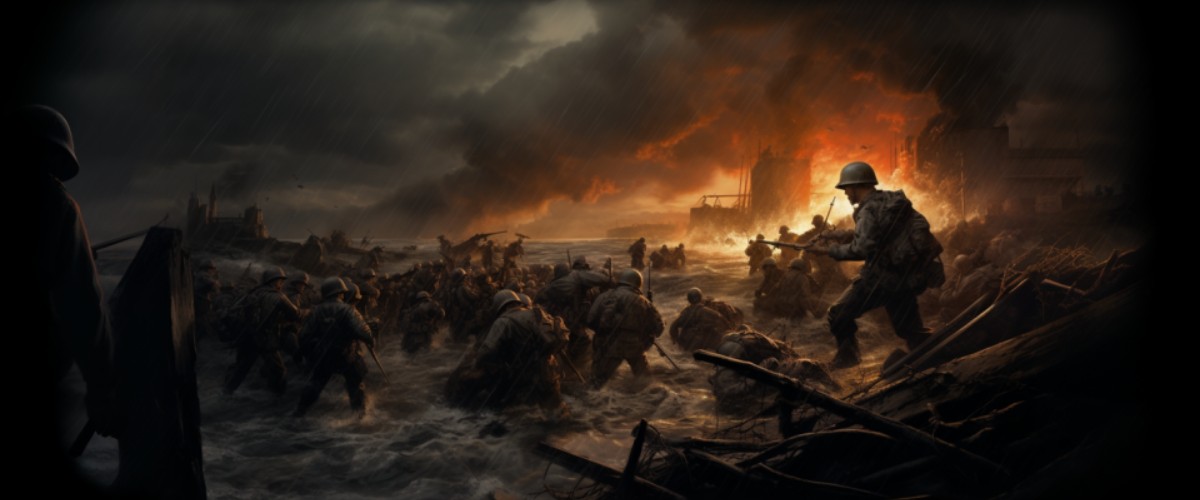A cataclysmic event, World War II wreaked havoc upon nations and left an indelible mark upon the world, permanently altering the socio-political and economic landscape of the global community.
Background: A Smouldering Fuse
- Rising Tensions
- The Treaty of Versailles (1919): Imposed harsh penalties on Germany after World War I, sewing seeds of resentment and economic strife.
- The Rise of Totalitarian Regimes: Adolf Hitler in Germany, Benito Mussolini in Italy, and militaristic expansionism in Japan fostered aggressive international stances.
- Key Personalities
- Adolf Hitler (Germany)
- Winston Churchill (United Kingdom)
- Franklin D. Roosevelt (United States)
- Joseph Stalin (Soviet Union)
Major Happenings: A Timeline of Turmoil
- 1939: War Erupts
- September: Germany invades Poland, triggering the Allied nations (primarily UK and France) to declare war.
- 1940: Expansion and Atrocities
- German forces sweep through Europe, conquering Belgium, Netherlands, and France.
- The Battle of Britain: A failed German attempt to subdue the UK.
- 1941: Global Engagements
- December: Pearl Harbor – Japan attacks the US, bringing them into the war.
- 1942-1943: Turning Tides
- Major battles such as Stalingrad and El Alamein shift momentum toward the Allies.
- 1944: D-Day
- June: Allied forces storm Normandy’s beaches in a massive offensive against Germany.
- 1945: War’s End
- May: Germany surrenders after Berlin falls to the Allies.
- August: Atomic bombs are dropped on Hiroshima and Nagasaki, Japan surrenders.
Immediate Outcomes: A World Reeling
- Death and Destruction
- Enormous civilian and military casualties, with estimates upwards of 60 million.
- Cities across Europe and Asia lay in ruins.
- Political and Territorial Changes
- The United Nations is formed to foster international co-operation and prevent future conflicts.
- Germany is divided, and the Iron Curtain descends upon Europe.
Long-term Impact: Echoes Through Decades
- The Cold War
- Tensions between the United States and the Soviet Union lead to a prolonged period of global instability and proxy wars.
- Decolonisation
- War-weakened European powers gradually lose their overseas colonies, leading to widespread decolonisation, especially in Africa and Asia.
- Technological Advancements
- Military innovations and nuclear technology from the war significantly influence civil technological advancements and the initiation of the nuclear age.
Conclusion: A Lasting Shadow
World War II, with its profound devastation and transformative outcomes, inevitably shaped the latter half of the 20th century and beyond. Its echoes, found in ensuing global politics, technological advancements, and the collective memory of atrocities and heroic deeds, continually remind us of a tumultuous period that redefined humanity’s trajectory. The enduring relevance of World War II is evident, not merely as a historical epoch but as a poignant reflection on the capabilities for both destruction and unity within the international community.
Through this lens, it persists as a stark reminder of the potential consequences of political extremism, economic instability, and international discord, whilst concurrently showcasing examples of unity, resilience, and collective resistance against oppressive forces. Even as the world evolves, the insights gained from reflections on this devastating conflict continue to shape global perspectives and diplomacy.








